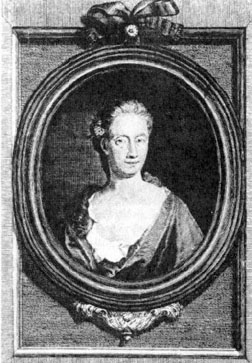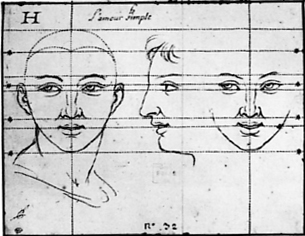

|
13-Feb / Dive in-Historical Acting-NERD ALERT! / 0 COMMENTS

Portrait of Eliza Haywood (1693-1756) 1725, by George Vertue (1684–1756), after James Parmentier (1658–1730), National Portrait Gallery
I finished reading “Love in Excess” by Eliza Haywood about a month ago, and had so much fun in the descriptions of the passions and how they occur. They are so clear and sometimes defy some prejudices I have about how passions were thought of at the middle of the 18th century. I had to go back and read the whole thing just to find this particular quote I didn’t notate at the time. Isn’t it always like that though? The one quote that doesn’t leave you, is the the one you left without marking. Well, I finally found it back. It has a great description of the passion of love, how it is felt and expressed.
“There is nothing more certain than that love, though it fills the mind with a thousand charming ideas, which those untouched by that passion, are not capable of conceiving, yet it entirely takes away the power of utterance, and the deeper impression it had made on the soul, the less we are able to express it, when willing to indulge and give a loose to thought; what language can furnish us with words sufficient, all are too poor, all wanting both in sublimity, and softness, and only fancy, a lover’s fancy, can reach the exalted soaring of a lover’s meaning! But, if so impossible to be described, if of so vast, so wonderful a nature, as nothing but itself can comprehend, how much more impossible must it be entirely to conceal it! What strength of boasted reason? What force of resolution? What modest fears, or cunning artifice can correct the fierceness of its fiery flashes in the eyes, keep down the struggling sighs, command the pulse, and bid the trembling, cease? Honour and virtue may distance bodies, but there is no power in either of those names, to stop the spring that with a rapid whirl transports us from ourselves, and darts our souls into the bosom of the darling object.”

L’Amour simple: deax têtes de face et une profil
Le Brun, Charles
Département des Arts graphiques
© Musée du Louvre, dist. RMN-Grand Palais – Photo M. Beck-Coppola
One of the things that jumped out of the page for me, was the hint to the idea that passions have the power to check other passions’ manifestations. The thought that passion doesn’t simply stop by the-person- it- possesses’ strong will. Other needs, ones that are more powerful in the moment, overthrow the hold which a not-as-strong- felt-passions has. The idea that love’s expression cannot be held back, or checked by anything else, not even honor and virtue, and that only the physical removal of one’s body from the loved object can hide its expression is quite beautiful.
Charles le Brun Eliza Haywood Love Love's expression The context of the passions The expression of the passions